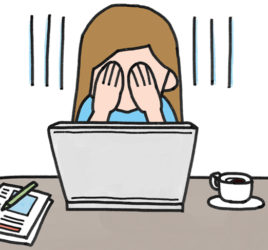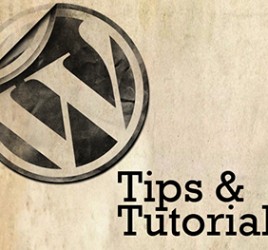SEO Help – How To Write Great Website Content
Content is king they say. This has never been so true as it is when you are talking about web content. There is so much information available on the web these days that people expect information to be unique, timely and relevant. The content needs to be fast loading, clean and easy to read, easy to navigate and especially easy for the search engines to index.
This is the recipe for successful web content in a nutshell but getting from theory to reality is the part that most web sites miss. Going beyond the obvious — Good grammar, spelling and choosing a clean, clear typeface — there are many things that you can do to write quality content for your website. Here are a few to consider:
1) Make your content interesting. Don’t just provide dry information and facts. Make it lively and entertaining whenever possible. Sell yourself, your services or your product. Use humor and make yourself likable. Put yourself into your clients shoes and try to write your content as if you were trying to convince yourself to buy, sign-up, or request your own service. What would make you buy your product?
2) Write about things and provide information that you know well. Do it quickly and efficiently so you get your message across fast but also make quality use of the time someone is spending reading your site. If you try to cover a large topic in a mediocre or unconvincing way, people will probably not bookmark and return or even worse they many not even finish reading and move on.
3) Keep your content short and sweet when possible. The first paragraph of your article is critical. If it’s dull, boring and lifeless, your reader will surely move on. You must keep their interest right from the start and drive them to pick up the phone or pull out their credit card. On the web people like to get information fast and it better be good. Don’t drone on for pages trying to sell and convince people. Give it to them straight and to the point and then if you feel that it might be beneficial to expand on your topic then do so. But never drag out a sales pitch. Allow your visitors to get the information they need and then if they want more you can always provide it.
4) Make your content load fast. There is nothing more irritating than a site that loads slow. There are many reasons for this and the reasons can sometimes be out of your hands like the users connection speed, network congestion, slow host server, etc. But overall you and your web developer have control over your content.
First off, the way your web developer codes and programs your page is very important. Be sure the code on y our pages uses CSS (Cascading Style Sheets) standards. To the non-literate web person this means two things. First, CSS allows you to accomplish more with less and reduce the amount of code on your pages. The less code, the smaller the page size. Second, CSS is the accepted standard in web design as compared to visual mark-up HTML tags that will soon be deprecated and eventually will no longer work.
Other items to consider are: Use small images that give the user the option to enlarge if they desire, don’t use music or sounds that are automatically forced upon a visitor, do not use pop-up windows, never use blinking text, restrain yourself from using fancy features like Java applets, Flash Intros, javascript, excessive animation and other cool but unnecessary features that slow the access to your content. And NEVER use code on your site that is specific to a certain browser. Have you ever seen a site that says something like “Best viewed with Internet Explorer”?
5) Provide content that is broken up into short paragraphs and short pages. People are much more able to digest content faster if the information is given to them in short bursts instead of long clumps of text.
6) Do not use images to replace text. They take longer to load, they really don’t look much better, blind people can’t read it and that text will no longer be searchable by the search engines.
7) Only underline links and make sure you have actual links underlined if the link is included in a paragraph of text. If you underline text to emphasize something but it is not an actual link, your readers will almost certainly be confused. The same goes for links that are not underlined. People may miss out on valuable information because they have no idea that the text leads to something more detailed or interesting.
8) Structure your text. Make use of bold headings, short paragraphs, bullet lists and tables if the information requires it. To better organize your thoughts, divide your article into sub-headings. Sub-headings make things easier to digest. Instead of tackling the entire article at once, try writing one paragraph at a time.
9) Use words in your content that people will search for. Search engines consider headings, page titles, bold and linked text to be more important and relevant and the precise wording of these sections of your content are extremely important
10) Create a lot of links and use relevant keyword phrases as the link text. Ask other sites with similar content to link to your site and most important, tell them the text to use in the link.
11) Make good use of white space and allow your content to breathe. Don’t allow text to butt up against graphic elements on your site or photographs, etc. Don’t place too much emphasis on your navigation elements if content is important to your site. Allow users to easily read your message in a clean, uncluttered and — in the case of blinking text — non-irritating environment.
12) Write your own content. Use only content (pictures, text, videos, …) made by yourself or with explicit permission, everything else probably infringes someone’s copyright.
13) Check and double-check your content. Use a spell-checker, and have someone check your texts for correct grammar. Some people are really turned off by those kinds of errors and it can cost you a potential sale or ongoing client. When in doubt hire a copywriter or even someone to proofread your own writing. You usually only have one chance to make that first impression and if you take your content seriously then a small investment in the services of a professional writer will be well worth your money.
14) Try to avoid placing banners at the top of your page. If you run a site that depends on advertising you might want to ignore this suggestion but for most sites, banners will instantly take your customers to another site other than your own and you will lose the sale. If you have to have banners or advertising on your site, limit the number of banners on your site to no more than two per page. One is ideal and try to make the advertising relevant to the content to add value.
15) Promote your content. The most important thing to remember is that content without promotion is well… just content. You need to get the word out that you have something important to say, get your site address in all of your advertising, get your site listed in search engines, write industry specific content that can be provided to other sites, and in general do everything you can to get people to your site where you do your selling. You can do a lot on your own but consider hiring a full time professional if your site is important to you. The money you spend will be returned ten fold (and I can guarantee it) if you follow the rules provided in this article.
Resource:
How To Write Great Website Content
Author: Christopher Auman — Published: Feb 07, 2005



